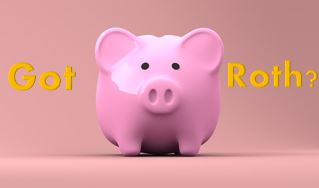Money, finance, and wealth. To create the life of your dreams, be sure you implement these 10 SECRET financial strategies that the wealthy use everyday.
Brian Tracy said “At least eighty percent of millionaires are self-made. That is, they started with nothing but ambition and energy, the same way most of us start.”
If you’re in the financial majority (meaning you aren’t financially free yet), these ten financial strategies will help you move through the first stage of wealth building.
It’s not enough to know and understand these financial strategies though.
In fact, some of them you may already be familiar with.
It’s in the application and execution of the strategies that you will change your life.
That being said, let’s take a look at the first one.
Let Go of Limiting Beliefs About Money
 Limiting beliefs about money is problematic for many people.
Limiting beliefs about money is problematic for many people.
If it’s not for you, that’s great.
Move on to the next section.
But before you do, take some time to finish the sentence below.
Money _____________ (fill in the blank).
I know I didn’t give you much to work with, but that’s because there’re so many phrases that fit in the blank.
These are phrases and ideas that are drilled into us at such a young age that often we never stop to question their validity.
Did your sentence sound like any of these:
- Money doesn’t grow on trees.
- Money can’t buy you happiness.
- Money is the root of all evil.
- Money… mo’ money… mo’ problems
- Money isn’t everything.
- Money equals greedy.
- Money isn’t everything… but it ranks right up there with oxygen. (Ha! That’s a Zig Ziglar quote, it’s great)
Seriously though, were your first thoughts about money similar to any of these?
If so, you may have some limiting beliefs about money that you need to deal with if you ever want to get your financial world in order.
Study Personal Finance

The best way to deal with your limiting beliefs about money is to start studying money, finance, and wealth.
To learn and master the top financial strategies, you’ve got to study the top financial strategies!
You’re doing that right now just by reading this post.
Choose an area you’re interested in and begin to study the way money works in that area.
I’ve learned over time that some people have apprehension when it comes to discussing money.
It’s a private area for most people.
A part of their life they don’t like to talk about or discuss.
But they have no problem wishing they had more, they just don’t take the time to learn how to create abundance.
If you are serious about learning more, this site is a good place to start.
Check out our wealthanizing 101 section and order a book from amazon on a topic that interests you.
The more you study basic financial strategies and implement them, the sooner you’ll be financially free.
Once you start learning, you’ve got to make a commitment.
Commit to Financial Change

One of my favorite quotes is “If nothing changes… nothing changes”.
I’m not sure where I got it but I like it because it’s simple, true, and easy to remember.
No change comes without true commitment, that includes financial change.
You have to make a decision and stick with it.
When you learn a financial strategy or concept, it’s up to you to implement it and execute on it.
Much like getting in shape and eating healthy, the principles of money and wealth building (like health) are fairly simple.
But simple aint easy!
Nothing worth doing is easy.
You’ve got to make a commitment to change, then learn, and grow.
Reading books, listening to podcasts, watching YouTube videos, and visiting sites like this are all great ways to learn and also help keep your mindset right.
In this day and age, there’s really no excuse not to learn other than laziness or lack of desire.
If you don’t have the desire to build wealth and be financially free, I can’t help you.
Nobody can.
So cultivate that desire to learn, take a few small risks, and never give up.
As you start to accumulate excess cash you can risk more if necessary.
Just don’t risk more than you’re willing (and able) to lose.
Control Your Financial Spending
Controlling your spending is super, insanely, ridiculously important!
Did I get your attention?… Seriously.
This is one money concept that you can’t ignore… financially speaking.
At my gym there’s a sign that says “you can’t outwork a poor diet”.
The point is, it’s easy to take in more calories than you could possibly burn in a day. To the point that no matter how hard you worked, you wouldn’t be able to burn them all off.
The same thing can be true for your bank account.
You can’t have more money going out than coming in. You’ll never get ahead.
You must take a look at your numbers (even if you’re not a number person).
Look at how much you have coming in and make a plan for what is going out.
Then stick to the plan!
Spend Less Than You Earn
This step is connected to controlling your spending.
None of the other financial strategies I cover can be accomplished if you have more money going out than coming in.
If you’re just starting out, you may have to get creative.
First figure out where your money is going.
There are the normal outgoing monthly expenses that probably won’t fluctuate much (mortgage/rent, insurance, gas, groceries, phone, etc.).
Figure out what these are for your family.
Then take a close look at what’s left and figure out where the rest of your money is going.
Once you know exactly where you’re money goes, you can decide what to cut back on.
This is the most important step to creating a good financial plan.
Are you spending money on entertainment, shopping, fast food, expensive coffee drinks, Amazon prime rentals, etc.
Often, it’s the little things that add up without us noticing.
I hate to keep using the same example, but the person who snacks throughout the day and drinks sugary drinks is probably taking in way more calories than they think they are.
Same concept.
Once you’ve got a specific idea of where your money is going, you can make a plan and implement a financial strategy that will work to help get you ahead.
Your initial plan is to focus on making sure you have more money coming in than going out.
Tithing & Giving
This is a biblical principle and it’s good for the soul.
Tithing is the act of systematically giving 10% of your earnings to the church where you worship.
If you’re not a spiritual person, I recommend you start going to church somewhere and tithing.
You’ll hear a great message every week with life lessons you can apply to your life whether you believe in God or not.
But that’s not what this article is about.
This is about financial principles.
If you’re absolutely close minded about this, feel free to skip to the next section, you won’t hurt my feelings, but you’ll be missing out.
Or maybe you are a Christ Follower and you know you should tithe… but… you just can’t bring yourself to do it.
Here’s the deal from scripture.
Malachi 3:10 – Bring the whole tithe into the storehouse, that there may be food in my house. Test me in this,” says the LORD Almighty, “and see if I will not throw open the floodgates of heaven and pour out so much blessing that there will not be room enough to store it.
So from an intellectual perspective it doesn’t make sense.
But what works and what makes sense don’t always go together.
If you believe in a spiritual power outside of our realm, then it makes perfect sense.
God made a promise, He has the power to deliver on the promise, and He keeps his promises.
“Blessing” can mean so many things.
I can say from experience as someone who has tithed consistently for over 20 years that it is amazing what God does when we are faithful in the little (so we can be trusted with more).
Of all the principles and financial strategies I’m going to discuss, this one actually has power and a promise behind it. If you haven’t tithed before, start this week. Make it a habit.
I can’t explain it.
I don’t know how it works.
But it works.
I highly recommend it.
Start Saving Consistently
Once you’ve accomplished spending less, you’ll have some margin. A little extra cash every month.
You should be saving this for an emergency fund and/or to invest and grow it.
When you start saving a little consistently over time, you’ll be ahead of most of the population.
Even if it’s just save $250, $100, $50, or even $20 a month, you’re making progress.
It may not seem like much, but it’s not the amount that’s important in the beginning, it’s the discipline of managing your finances that’s really important.
Plus, you’ll be amazed how it will add up over time and how much more control you’ll have of your total budget.
If you understand the outflow, you can control and direct it.
If you can only save $20 a month, but you do it consistently, you’ll be surprised how much you’ll have after a year.
It won’t just be $240 (12 x $20).
That’s because you’ll have spent an entire year being more aware of what you’re spending money on.
You’re human. There’s a psychological component at work.
Once you’re spending less than you earn and studying finance, you’ll acquire the confidence and knowledge to increase your bottom line.
You’ll start saving more than the $20 every month if you’re really committed to it.
You’ll start to find joy in saving, then in watching the number grow, and then finally in seeing how fast you can make it grow.
Make More Money With a Side Hustle
(Increase Your Earnings)
I know what you’re thinking… easier said than done.
But once you start down the path of learning how money works, this will be easier than you think.
You gotta learn to make it rain.
I’m not suggesting you go get another job on top of the one you have, although a second job is one option.
Before you get a second job though, just understand that a 2nd job isn’t sustainable for a long period if you want a high quality of life.
A friend of mine works three jobs.
He’s never home and his health is suffering.
He never learned basic financial concepts, such as the fact that trading time for dollars is NOT a good financial strategy.
The problem at this point is that he has very little extra time in his life to learn and implement ideas.
He has no financial margin.
On top of that, he feels trapped because he’s basically working just to keep up with his expenses.
He’s treading water. He doesn’t have much money left at the end of the month.
He is working himself to death… literally.
That being said, he drives a lot from job to job, so if he wanted to, he could learn a better way to earn by listening to podcasts and then implementing some ideas.
Where there’s a will, there’s a way- it’s not just a cute saying.
If you really want to make more money, you need to find a side hustle.
A successful side hustle is determined by whether or not it does what it’s supposed to.
Obviously a side hustle’s purpose is to earn you money.
But what is is the ultimate purpose of your side hustle?
What are you aiming for?
- Is it to bring in quick cash to build your savings or pay off debt?
- Is it to build a continuous stream of income that is scalable and could eventually set you free?
Those are two very different objectives. If you don’t know your purpose you won’t know if you hit the target.
If you just want to bring in quick cash, you could have a yard sale, sell some stuff on Facebook Marketplace, do some side jobs (yard work, help someone move, tile work, painting, etc), or flip money you already have.
If your goal is to create an income stream that has much more potential, you’ll have to forego the quick payoff and look at a long term strategy.
This could include making money online, starting a home based business, or even starting a traditional business on the side.
If you’ve been on this site before, you know I’m a big fan of network marketing.
It got a bad rap over the years because most people fail to commit to it and then bad mouth it to others.
The truth is though, it’s a fantastic long term financial strategy that you can do without actually risking much from a financial standpoint.
Also, I firmly believe that with the potential audience reach available with technology today (social media, blogging, YouTube, etc.), NOW is the best time in the history of the world to create a full time network marketing income.
Regardless, once you start spending less and saving more, the next step is to bring in additional revenue & reinvest your profits into more earnings.
How you do that is up to you.
Eliminate Your Debt
These strategies aren’t necessarily in order.
But eliminating your debt should definitely be a high priority.
There are those who say you should throw all your excess money to getting out of debt as quick as possible, no matter what.
While there’s nothing wrong with that financial strategy, my experience has been that sometimes it doesn’t make sense from a logical standpoint.
If you have high interest consumer debt, definitely get rid of it ASAP.
In that case, it probably is the best thing you can do. But not always.
Run the Financial Numbers
For example, if you have $2,000 on a credit card that’s charging 20% interest, you should view your interest rate as your ROI (return on investment) when you pay it off.
20% is a good return on any investment.
However, once you get to the point where your consumer debt and any other high interest debt is paid off, it doesn’t always make financial sense to not use any debt.
Let’s look at a specific example from my own life.
My wife and I don’t use credit cards.
In fact, we don’t even have credit cards and haven’t for years.
Yes, we use plastic cards to book stuff and pay for stuff online, but the cash doesn’t come from a line of credit.
It comes from our bank account.
However, we have an exceptional credit rating, probably in part because we have no cards and have high incomes, so our debt to income ratio is quite low.
But we still finance our cars.
As of today (I just checked), I owe $12,424.24 on my car.
I have the money to pay it off. So why don’t I?
My interest rate is low, It’s financially sound to pay off debt. Yet, there it is.
The reason is because I’ll make more money with the cash than I could without it.
One of my favorite strategies for creating additional income is land flipping.
(I discuss it in depth toward the end of my flipping money article.)
I can take the $12,000 dollars and double it every year for the life of my car loan.
Even if I spend all the money I make off each flip (which isn’t what I would do), that’s still $60,000 ($12,000 x 5 flips) of additional income over the next five years.
If I paid my car off right away, the interest I would save would be $1,647 and some change.
However, I wouldn’t have access to the $12,000 to flip each year.
Paying off the car will save me $1,647 in interest, but I will have to forego the $60,000 profit I could create with that cash …. why would I do that?
It’s simple math.
Financing the car and keeping the cash to work for me makes the most financial sense in this situation.
Note: It does NOT make sense if I blow the money on consumable goods.
The fiscal risk is minimal if I invest, but it’s still there.
I could buy some land I can’t sell and lose it all.
In that case, I would have wished I just paid off the car.
If I was staring at high interest consumer debt or was brand new to flipping land, I would choose to pay off debt because it’s a guaranteed return.
My point is, you want to eliminate debt as quickly as possible, but you have to think about each item of debt you have and if it makes sense to do so financially.
Sometimes, taking your money and paying off a low interest debt just doesn’t make as much financial sense as it seems.
You also have to take into account your personality and human psychology. There’s a something to be said of not owing money to anyone for anything.
Eventually, when I have enough cash to invest AND buy cars/rental houses outright, I will pay cash for the psychological benefit alone, even though it may not be the best financial strategy for me.
I’ll do it because it will be the best financial strategy for me.
My vision for retirement is positive cash flow (lots of it) and absolutely no debt.
So when I’m 50, I won’t be financing a rental and letting my renters pay my mortgage over 20-30 years.
At that time, debt freedom and elimination of debt (and risk) will be more important to me than Return on Investment (ROI).
This section was longer than I wanted, but debt is not always as simple as the gurus make it out to be.
I would say if you have any apprehension about any debt you have… then pay it off!
Also note, the risk vs. reward ratio of what you plan to do with the debt.
In this case, I would buy land because I am quite confident I can flip it and because I’ve done it many times before (I don’t just think I can do it).
What I wouldn’t do is buy cryptocurrency with it.
Not because crypto is a bad idea or bad investment (I think it’s probably a good investment at the time of this writing).
I personally wouldn’t invest because I’m not knowledgeable enough about that particular financial strategy yet to make an informed decision.
I might lose my money… in which case it would have been wiser to just pay off the car.
I always try to follow Warren Buffet’s number rule about investing… never lose money!
Own Your Assets.
Don’t Rent – Don’t Lease.
When your credit is good enough or you have enough cash, you should be buying your car and house.
I won’t go into a lot of detail here, but rest assured, if it’s being rented to you or leased to you, it’s more expensive in the long run than buying it.
Some argue that it’s cheaper to lease. Yes, that’s true the first few years.
You can get a nicer car for the same price if you lease it.
Do you know why?
Because as long as you don’t own it, you must give it back when you trade it in for another lease (and then the dealer will sell the car and make even more).
You’ll always have a payment.
That’s one reason people have told me they lease.
They justify it by saying, well… I’m always going to have a payment.
Guess what? Not true.
That’s your choice.
Let’s say you pay it off and drive it a few more years after your payments end.
This will position you better for your next car.
For example, let’s say your payments are $325 a month.
You pay off your car and then drive it for 2 more years (24 months).
During those 2 years you put that $325 in the bank and save it since you were already used to making a payment.
You’ll have $7,800 (24 mo. x $325 = $7,800) plus the car that you’re still driving as a trade in when you go to buy another one.
You’re positioned better.
As far as real estate goes, you should own your home.
Take it from an investor.
Your landlord will always charge market value (or more) for the property which can go up in value every year.
If you get a fixed interest rate when you buy your house, you’re payment won’t change unless taxes and insurance do.
I have a rental that I got and the payment was around $450 a month.
I refinanced and took cash out of it before the market crashed which put my payment at about $750.
Market rent in the area is $1,100 and I have a positive cash flow every month.
My renters are paying off my house. When it’s paid off, that will be passive retirement income for me… and, there’s no waiting until I’m a certain age to get it.
Once it’s paid off, I get the check and since there’s no payment, I get to keep it all.
This is the same principle as the car.
If you rent, you will always have a payment and not build wealth.
This is particularly true in real estate.
If you buy, you can eventually pay it off as well as have it increase in value.
Besides all that, did you know that if you live in a house for 3 years and then sell it you don’t have to pay capital gain taxes from the sell?*
If you’re willing to move around every three years to developing areas or communities, this can be a financial strategy all by itself.
**I’m not a tax or real estate adviser, check with your certified specialist if you have questions about this.
Open a Roth IRA
(Individual Retirement Account)
I should state again that I’m not a tax or financial adviser, so take anything I say or do with a grain of salt.
You have to make the right financial decisions for you.

A Roth IRA (Individual Retirement Account) is different from a regular IRA. The difference is that in a normal IRA, you put money in before it is taxed (so you get to take more home).
The caveat with a traditional IRA is that eventually (when you retire), you have to pay taxes on your gains.
However, money deposited in a Roth IRA is deposited after you’ve already been taxed.
That being said, you don’t have to pay taxes on your gains as long as you wait until retirement to take it out.
There are some rules and regulations and you should check with a trusted professional before you make any decisions, but this is HUGE!
My Roth is with an online brokerage so I can manage it myself, I won’t say which one but I think most of them can set it up for you.
You can only put in a limited amount every year, but as you buy and sell stocks and hopefully grow your portfolio, you’ll never have to pay taxes on your gains as long as you wait until a certain age (I think it’s 62.5 yrs) to make withdraws.
How fun is that!? I have no idea where this came from or why or how it’s even allowed… it must have been a different Uncle Sam who approved this.
But the fact remains that it does exist and if you’re not taking advantage of this financial strategy you should be.
Who knows how long it will be around.
Besides, stock trading is fun, exciting, and a little addicting.
Leverage Real Estate Investing
One way to leverage real estate is just by owning the home you live in. We discussed it a little bit already. Typically, homes go up in value.
Part of that is due to inflation and part of it is based on the market, but over time houses usually go up if they’re in a decent neighborhood.
Once you start earning more and saving more, real estate can be a pretty good asset class to get involved in.
If you can afford the down payment and the numbers make sense, a rental unit can be a great investment.
I won’t get to specific with this because this is just a primer on some cool financial strategies you can use.
But if you’re interested in real estate and want to study it thoroughly for free, the best place I know of to learn is biggerpockets.
But here are some little known financial strategies you can implement when it comes to real estate.
House Hacking and/or Airbnb
If you’re in your early twenties, in college, or single, this is an awesome real estate strategy for beginners.
I didn’t know about this when I was younger or I would have totally taken advantage of it.
Hopefully my kids will benefit from my knowledge when they’re ready to purchase.
Here’s how it works.
House hacking is when you find a way to have your tenants pay for all or some of your primary residence.
You could buy a house with more bedrooms than you need and rent those bedrooms out through Airbnb, VBRO, Homeaway, or some other similar service.
Even if you only rent out one room for $25 a night you could make an extra $250 if you kept it rented for 10 nights a month.
Imagine if you had more than one room or could rent it for more than 10 nights a month.
Another house hacking option is to buy a duplex, triplex, or quadriplex.
You can live in one unit and rent the other ones out.
This allows your tenants to pay for your mortgage on the property.
Depending on how many rooms or how many units you have, you may even have a positive cash flow.
You could use this cash flow to pay the property down quicker or for other investments.
In the meantime, you’re living for free (if you purchased wisely).
Plus, you’re gaining equity as the property rises in value and the loan balance is paid down.
Let’s do a quick recap and review.
Top 10 Financial Strategies (Review)
- Let Go of Your Limiting Beliefs Around Money
- Become a Student of Personal Finance
- Make a Commitment to Change
- Control Your Spending (Spend Less Than You Earn)
- Start Saving Consistently
- Increase Your Earnings With a Side Hustle
- Pay Off Your Debt
- Own Your Assets
- Start a Roth IRA (Individual Retirement Account)
- Get Started in Real Estate Investing
If you found this article helpful, please let us know and we would be forever grateful for any social sharing you decide to do.
Also, click on the link if you’d like to start a relationship with Jesus Christ the Savior.
If you’re looking for a home based business and want to work with us, just click on the picture below and remember…
If nothing changes… nothing changes.
Jason & Daniele




